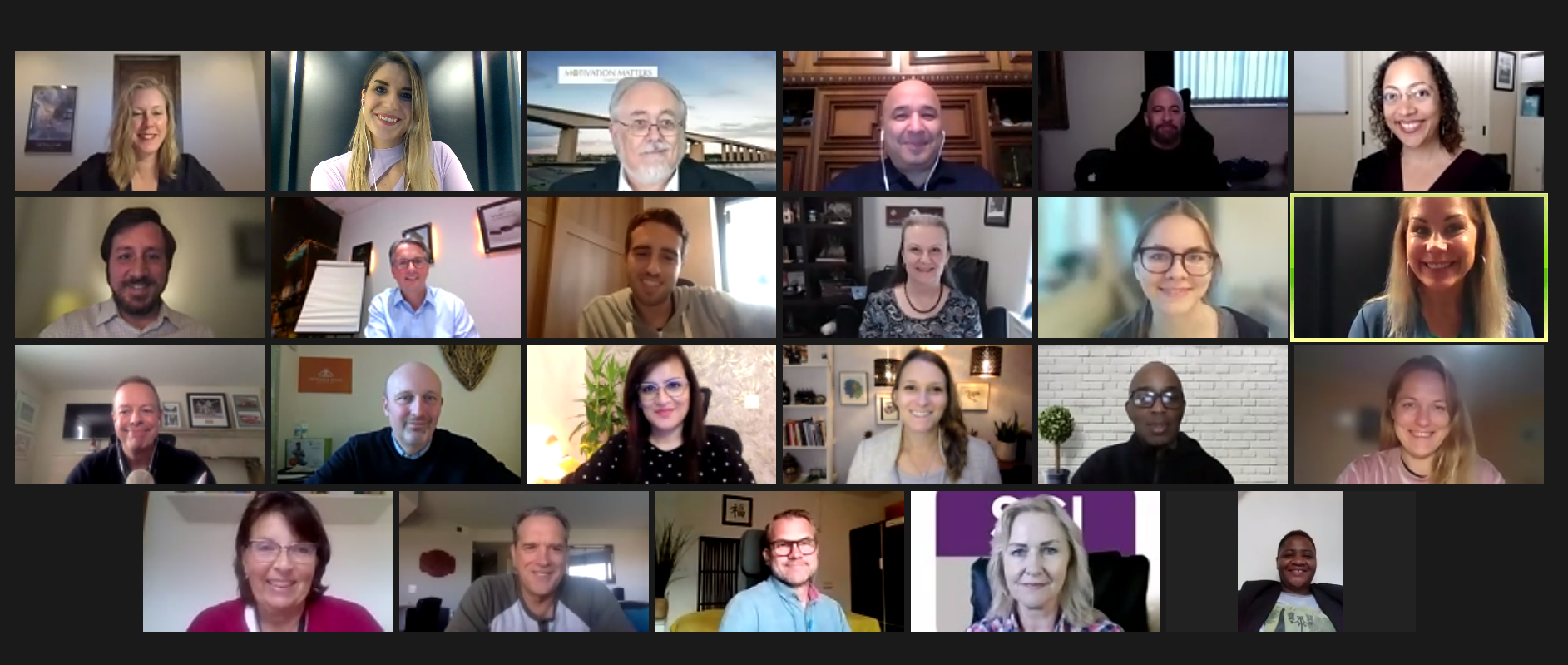People work with people, not with companies. But how to create truly functional and meaningful connections that provide a sense of social belonging and security? How to make the most out of virtual meetings? How to find relevant networking groups? These are the questions that Mari-Liis Vaher, an international mindset & marketing coach, addressed in the June 2021 issue of the leadership magazine Director.
Your network is your net worth.
This powerful and well-known quote clearly conveys the importance of having a professional network around you. Building a strong social circle is the most valuable activity for any leader, because it can essentially take you anywhere and help you with anything. If you know who to turn to with a question, a collaboration or a problem, or you know someone who knows someone who can help you with advice, then this is invaluable for any individual and business.
Yes, being socially active requires patience, certain skills, expanding your comfort zone, or sometimes even tolerating discomfort, but it is all learnable. At the same time, networking boosts your confidence, provides inspiration, and allows you to take your business to the next level and even improve your social life and relationships!
A sense of social belonging helps every professional to be confident and calm at the height of their duties. This means that if you have access to necessary contacts - be it collaborators, customers, colleagues or others - and the ability to communicate with them effectively, you feel that you are part of a network and belong somewhere.
Events and meetings with your network give you the feeling of being in the right place, and this is something that every expert needs to feel - being accepted and recognized by other industry experts.
We need networks around us, both at work and in our personal lives, where we feel welcomed, important and valued.

Surround yourself consciously with important contacts and maintain relationships through regular communication:
Why network?
Knowledge is power and as a leader you know that having the right information is very powerful if you know how to use it. By building a consistent and strategic network, you can smartly gain knowledge, contacts, and business opportunities.
It also means you can learn about industry trends without having to research and spend too much time or money on it. You can find a new potential customers or partners by casually giving a business card or connecting on LinkedIn after a friendly chat.
The better your need for belonging is met in your personal relationships or groups, the easier it is for you to replicate that fulfillment in another group, including your professional relationships.
If things are bad at work, make sure to reflect on your personal relationships for belonging and respect.
A person is always a whole - being successful professionally depends on a happy personal background.

Some examples of networks to visit:
- Business Network International (BNI)
- Global Business Owners (GBO)
- Powerful Mastermind Club
- MeetUp (platform for finding networking events)
- Eventbrite (platform for finding networking events)
- Virtual Non Execs
- Making Business Connections
- Virtual Team Referral Network
- Happy Neighborhood Project (HNP)
If you are interested in a very specific region or market, just put "networking" and the name of the city or country into Google search. During the pandemic, face-to-face networks have moved online, which is why there are so many opportunities for networking right now. Thanks to that, you can save a lot of time and money on travel!
How to get the most out of virtual networking?
- Update your LinkedIn profile - make sure that all the information is up-to-date and that your profile looks professional.
- Write down all the contacts that you see in the networking meeting (make a screenshot or save the chat file to work on it later).
- Find all the people you met in the networking group on LinkedIn and send a request to connect + be sure to add that I met you in “….” networking group and it would be nice to be connected via LinkedIn as well. By doing so, everyone will usually accept the invitation.
- Take a closer look at the profiles and decide with whom do you want to have a 1:1 call.
- NB! During a 1:1 meeting, the most important thing to remember is that this is not a sales call. Here you need to be prepared to 1) simply say in a few sentences what you are doing and who is the best lead for you; 2) ask how you can help the other person.
- Make notes for follow-up and send them after the meeting, or add a reminder to your calendar when you want to contact that lead again. Follow-ups are where sales and substantive collaboration can only begin, as trust grows over time.
- It's a good idea to also mark down the industry and any other relevant information about the lead in your contact list, so that you can easily find this information later.
Should you join a networking group as a member or as a guest?
Most networking groups have built their business on subscriptions, which means that you are expected to become a member. This may not be a bad choice if the network is right for you. Before deciding who to join, visit different groups as a guest and map out which groups have the contacts that you need most. Usually one group can be visited 1-2 times as a guest.
By the way, once a month, we at Powerful Marketers also host a networking event for marketers and entrepreneurs. Participation is free, but you must register in advance. Make sure to check it out HERE.
